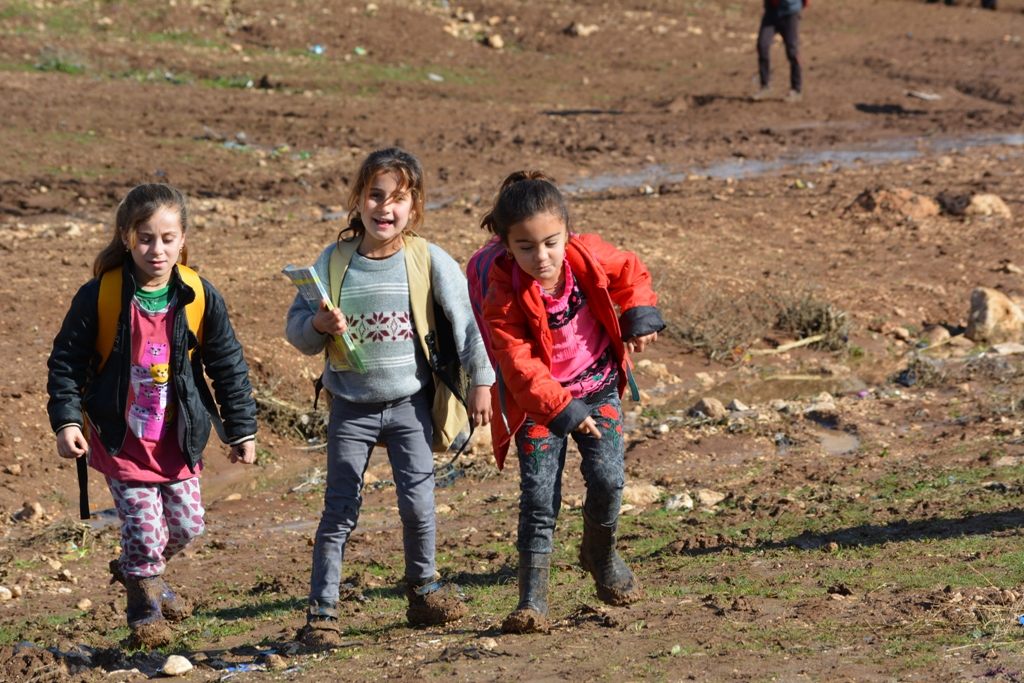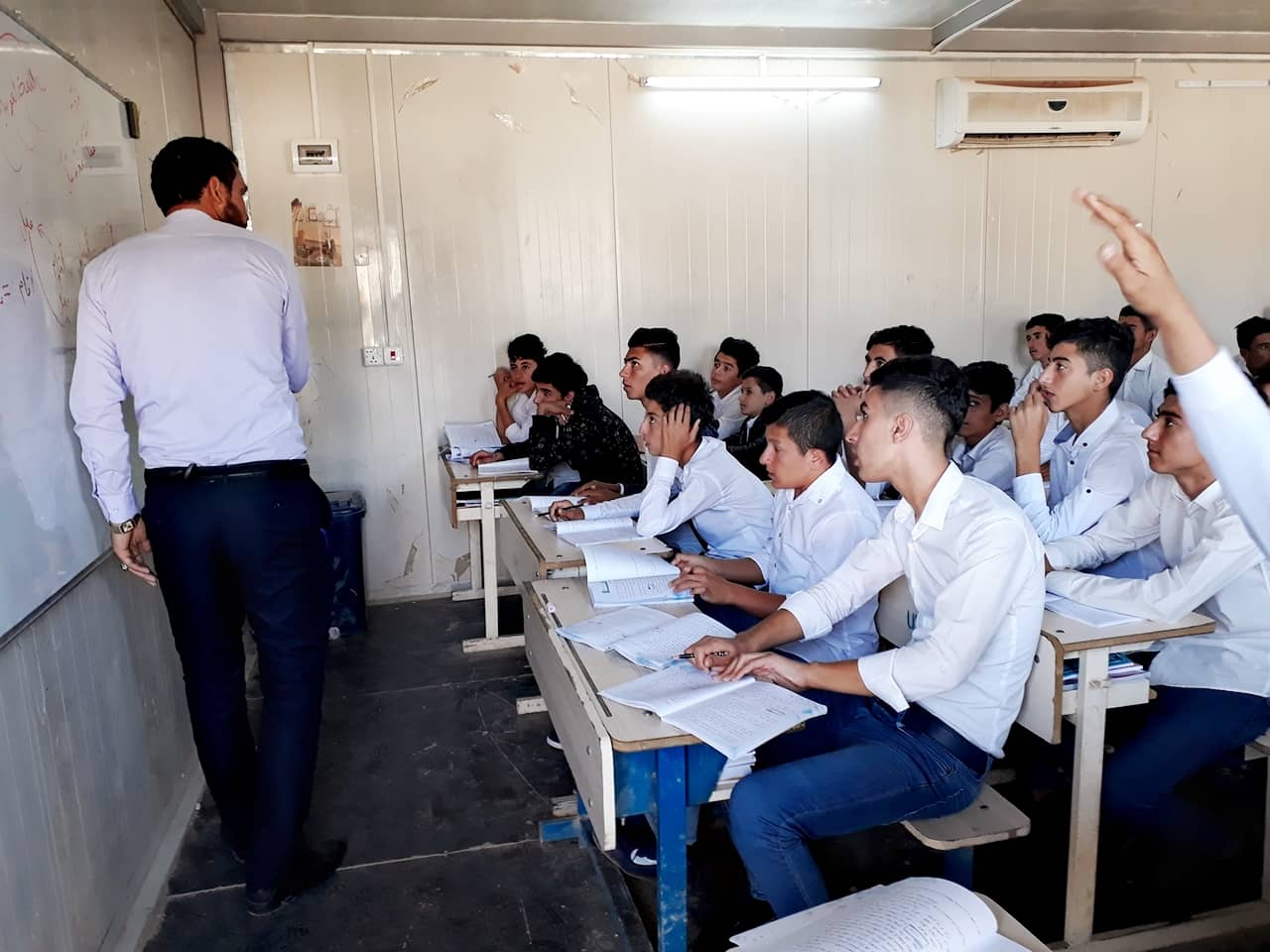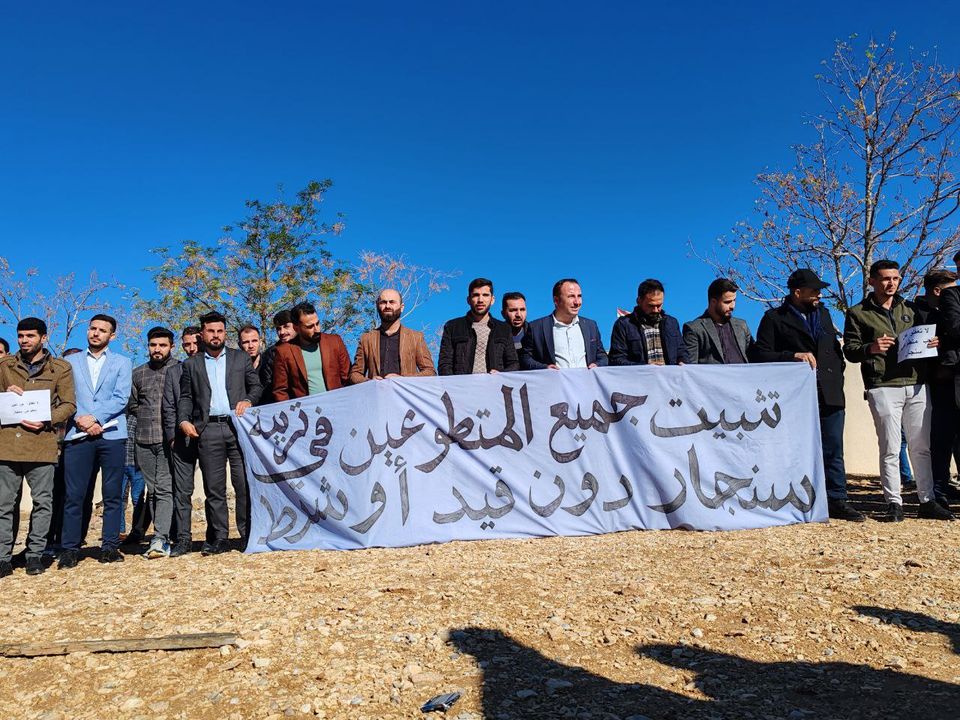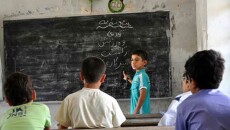Hundreds of volunteer teachers of the Arabic education department of war-torn Sinjar district have decided to shut classes unless being paid through contracts or permanent employment.
They have submitted a list of their demands to education officials last month, including being employed by the Ministry of Education as teachers like civil servants to benefit from salaries and other rights of teachers.
About 800 volunteer teachers have been protesting and boycotting schools since mid-November.
“We are tired of working daily without money. We will quit forever if we find out that they will not make us contracts. We have returned to work on condition that they solve our problems. Without setting any deadline for the implementation of their demands.
According to Khalil, who has been teaching mathematics voluntarily for three years, they are not paid a single dinar by the government.
Volunteer teachers in Sinjar Arabic education are not paid by the state and money is collected from students or parents to be paid monthly as aid or for transportation fees for teachers, which does not reach 100,000 dinars per month.
Contract teachers make 250,000 Iraqi dinars IQD (USD160) monthly and will have the same rights as fully employed teachers, including retirement after 15 years of service, bank loans and advances, fully paid maternity leave, a plot of land, and priority for full employment once vacancies are announced.

Zedan Khalaf, from the Bajid Kendal camp in Duhok, said they are afraid that the education process will be disrupted due to the teachers' boycott.
“A sister of mine is in class 12 (high school). Due to the boycott of the volunteer lecturers, she is about to quit because they attend classes only two or three days a week.”
If the lecturers quit, the education process will stop
In general, state schools in the Shingal (Sinjar) district suffer from a lack of teaching staff, and part of this problem started when the Iraqi government stopped employment for all sectors including education leaving schools in need of new teachers.
The district of Shingal, 120 km west of Mosul, the center of Ninewa province, is home to the Ezidi minority heavily targeted by the Islamic State in Iraq and Levant ISIL group in August 2014 and one of the disputed territories between Baghdad and Erbil.
Education like other sectors of life is divided between Baghdad and Erbil as schools sponsored by Baghdad study Arabic curriculum while those funded by the Kurdistan Regional Government KRG are in Kurdish.
Following the demonstrations and protests of teachers in Sinjar, Arabic teachers from camps in the Iraqi Kurdistan Region IKR went to Mosul education to demand contracts or full employment.
Saad Hussein, a representative of the volunteer teachers in the Duhok refugee camp, told KirkukNow, “Our main demand is to become contract or permanent employees because we have been working voluntarily for more than three years without receiving a single dinar.”
He affirmed they have been told their problem will be addressed.
“If there is no satisfactory response, we will take another position.”
According to two official statistics from the Arabic Education of Sinjar and the Iraqi Government Education Representation in Duhok, there are about 80,000 students of Arabic education in Sinjar, which are divided into more than 240 schools, including about 40,000 students and more than 100 schools in Sinjar district and others are displaced in or outside camps for the internally displaced persons IDPs of the IKR.
There are more than 600,000 IDPs in the IKR, some of whom are staying in 26 camps, mostly from Nineveh and Yazidis, according to the KRG.

A cabin tunred into a school in Kabartoo IDP camp, Duhok. KirkukNow
"If the teachers stop working, half of the schools will be left without teachers. It is not a simple problem yet the education process will stop because half of our teachers are volunteer teachers," Hassan Salih, director of Arabic education in Sinjar, told KirkukNow.
He explained that since June last year, the government has decided to hire volunteer lecturers per contract but the Ministry of Finance has suspended the decision and the implementation date is still unknown because they cannot make contracts or hire teachers.
“Their excuse is that they can’t hire per contracts or fully employ anyone thus the efforts to sort out this issue have been futile,” he added.
“We wish they attend classes this year as well to keep the education process ongoing.”
Schools in Sinjar were destroyed during the rule of ISIS (2014-2015) and most of them were demolished. All the teachers and students were displaced, but with the recapture of the area and the return of some families, the education process resumed in the district.
The impoverished Ezidi (Yazidi) community who still half back home and the rest prefer life under tents in the camps of Duhok province in the adjacent Kurdish region lead a severe life amid the absence of basic public services.
The war against ISIL left the province of Ninewa in general and the cities of Mosul and Shingal in particular sunk in debris. Millions of tons of debris require billions of Dollars to collect and rebuild the devastated region.
Qiran Saado, in Mam Rashan camp of Sheikhan district, is concerned about the problem of volunteer teachers and hopes it will be solved soon because her son is a teacher and has been working without pay for several years.
"The best solution is to resolve the case of the teachers as soon as possible," she said.
Iraq’s education infrastructure is in ruins in many parts of the country; one in every two schools is damaged and needs rehabilitation, says a report by the United Nations Children's Fund UNICEF about education in Iraq.
Many schools operate in multiple shifts due to inadequate buildings and staff in an attempt to accommodate as many students as possible, squeezing the little learning time that children have.






